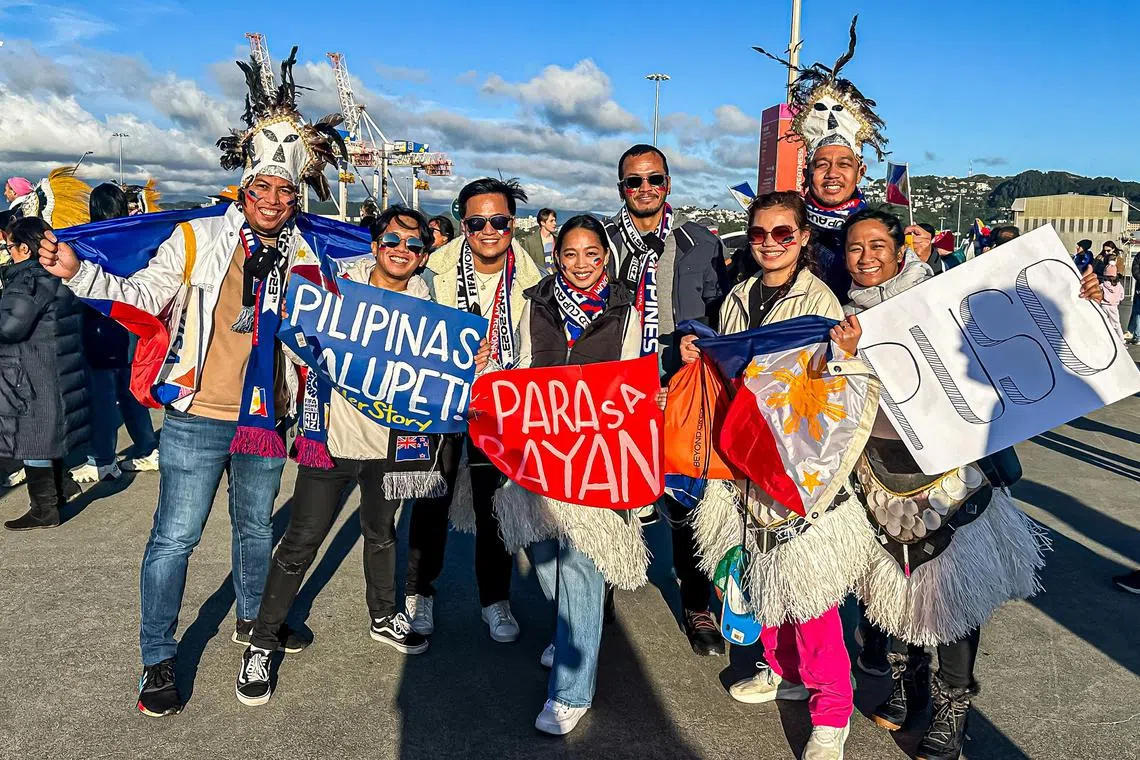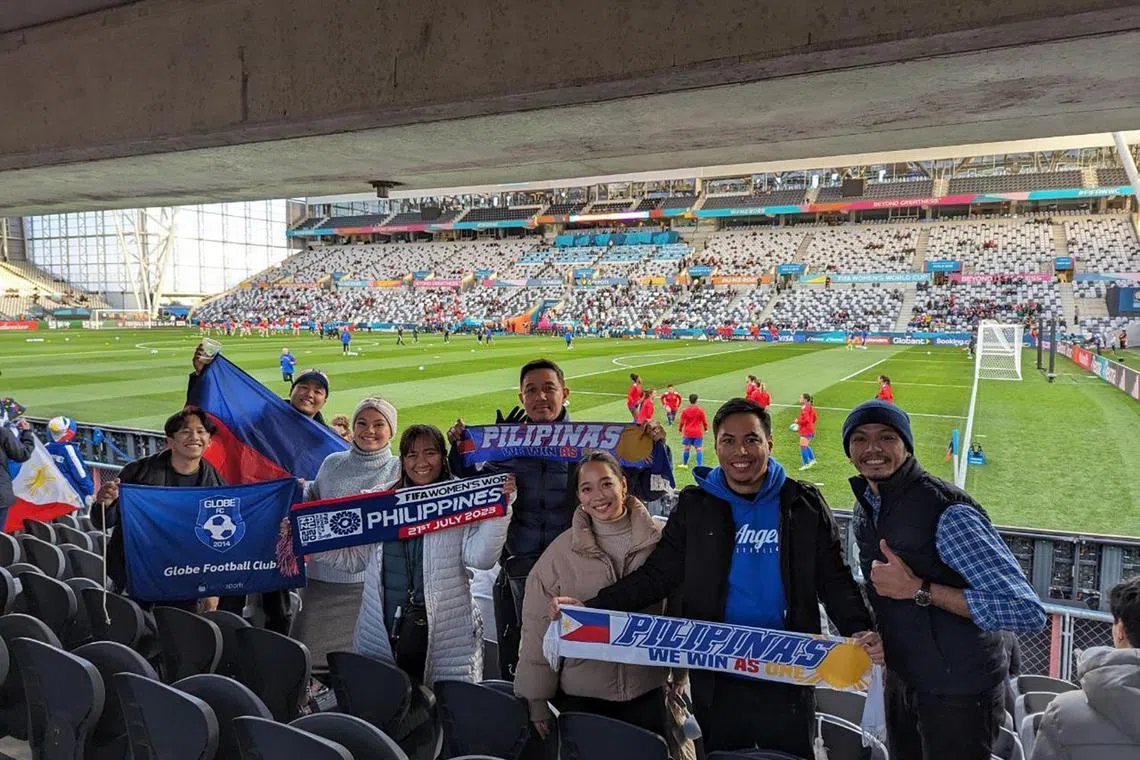Filipina underdogs stir pride in countrymen at Women’s World Cup
Sign up now: Get the biggest sports news in your inbox

Philippines fan Monica Abesamis (centre), with fellow supporters, has travelled from Manila to New Zealand to cheer on the national women's football team.
PHOTO: COURTESY OF MONICA ABESAMIS
Fabius Chen
Follow topic:
AUCKLAND – Just over a year ago, Monica Abesamis knew next to nothing about the Philippines’ women national football team.
But one year and an Asean crown later, the 27-year-old project manager from Manila has found herself travelling over 8,000km to New Zealand to cheer on the Filipinas in their maiden World Cup campaign.
“Everything changed when I saw them in action at the AFF (Asean Football Federation) Women’s Championship,” Abesamis said. “I found myself admiring the team, especially their grit and determination in the face of stronger opposition. That really left a lasting impression on me.”
Playing on home soil, the Filipinas romped to their first Asean title in style, seeing off defending champions Vietnam 4-0 in the semi-finals before defeating Thailand 3-0 in front of a euphoric crowd at the Rizal Memorial Stadium.
And having already seen the team make history, there was no way Abesamis was about to pass up the opportunity to see them do it once more – this time, on the world stage.
“Every time the Filipinas step out onto the pitch, they carry the hopes and dreams of an entire nation,” she said. “I couldn’t be prouder to be part of their journey to show that Philippine football is here to stay.”
Whether that journey continues beyond the group stage will be determined today, with the Filipinas taking on 1995 winners Norway, knowing that a win will secure passage into the round of 16. Draw and their fate would be left in the hands of Switzerland and co-hosts New Zealand, who square off in the other Group A tie.
Qualification is not guaranteed but strong support from their fans is. After all, the Women’s World Cup debutantes have had one of the most passionate fan bases so far at the tournament, with coach Alen Stajcic saying after his side’s historic 1-0 win over co-hosts New Zealand that “it feels like a home game in Manila”.
The stunning victory filled Marc Maayo, a Filipino who has lived in Sydney for seven years, with an immense sense of pride. “These ladies know that they are underdogs,” the retail design project manager said.
“But with great determination and puso (heart in Tagalog), they take on any team and fight to win.”
A long-time football fan whose interest began with the men’s game, Maayo said the Filipinas’ performance in the tournament could represent a watershed moment back home.
“The AFF Championship victory and this Women’s World Cup all point to how far our nation can go in this sport,” he said.
Venice Furio, a 38-year-old entrepreneur who like Abesamis made the 14-hour journey from Manila to New Zealand to support the Filipinas, agreed.
“I’ve seen women’s football in the Philippines endure many ups and downs over the past decade,” he said. “I always believed that we would play in the Women’s World Cup one day – I just never expected it would be this soon.”
Some might argue that this timeline has been accelerated by the assimilation of foreign-born players, with midfielder Anicka Castaneda the only Philippine-born member of Stajcic’s 23-woman squad.
The other 22 players – comprising 18 born in the United States, two in Norway and one each in Canada and Australia – do, however, have Filipino heritage and received their Philippine passports under dual-citizenship laws.

Philippines fan Monica Abesamis (third from right), with fellow supporters, cheer on the national women’s football team at the Women’s World Cup.
PHOTO: COURTESY OF MONICA ABESAMIS
But Furio was quick to point out that country of birth has had no bearing on the “puso” that the Filipinas have shown so far in New Zealand.
He said: “They have Filipino blood, and they represent us with immense pride and passion. They battle and bleed for us, and it’s important that our youth players look up to them and see themselves in them.”
Maayo added: “Regardless of where they were born, these Filipinas embody the sense of pride that comes with playing for the flag. Seeing them get emotional when hearing the Philippine national anthem play at the stadium made me tear up as well.
“They will be heroes and an inspiration to young players, both boys and girls, in the Philippines for many years to come.”
Fabius Chen is a former sports journalist now based in Sydney.

